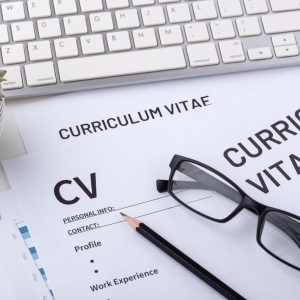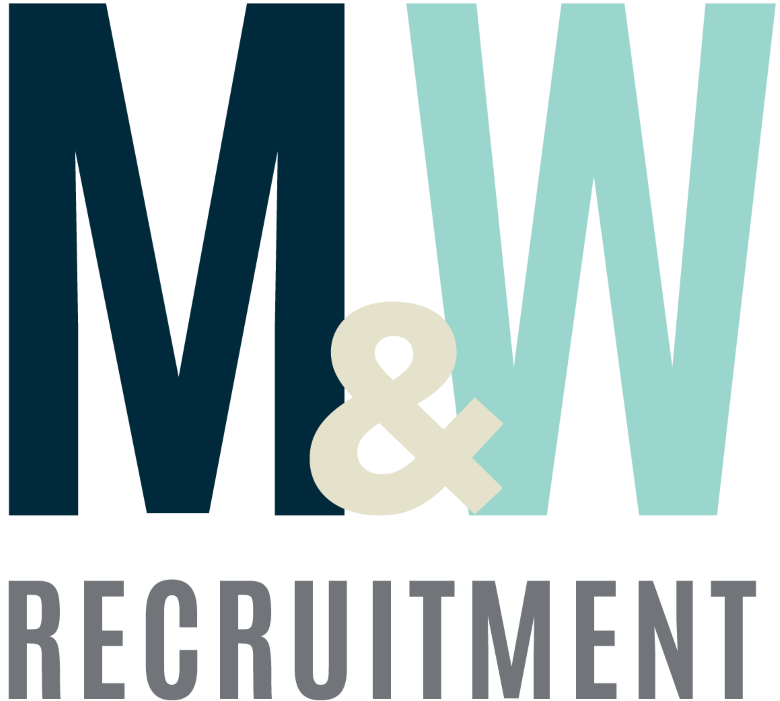Chris Potter
Mollie. Client
We have been working with Mumford & Worrall Recruitment for a while now. The team are so lovely to work with and we have never been disappointed with their service. Being a production company, it is vital that we have enough staff for all of our shifts. M&W always ensure this and also let us know immediately if there are any changes. They also help to provide alternative solutions straight away. Everyone I have dealt with there has been very helpful and efficient, I can’t fault them. I enjoy working alongside the team at Mumford & Worrall as they are just genuinely nice people to speak to and I look forward to working with them again in the future.
Parys Grant. Candidate
Tracey M. Client
A recruitment agency aims to help an employer find and hire the best person for their company. You must find the right recruitment agency for your business and roles. Many recruitment agencies specialise in a certain industry, at Mumford & Worrall we specialise in commercial and industrial sectors.
Partnering with a recruitment agency like us can be highly beneficial not only to your hiring managers but to your company as a whole. Here are the 4 key benefits of hiring a recruitment agency.
1. Specialist Knowledge
Recruitment agencies can let you know how to best achieve your recruitment needs, and get the perfect employee at the end of the process.
In every recruitment agency, they will have qualified professionals. Your in-house recruitment team may not be able to give professional advice and guidance to hiring better candidates and may struggle to interview for positions they are not necessarily familiar with. This is why it’s important to go to a recruiter that specialises in your sector.
2. Faster Hiring Process
Using a recruitment agency can speed up the time it takes to find a new employee. When using a recruitment agency, you provide them with details about the role as well as a deadline.
We have a huge database, a network of connections we can leverage, and access to expensive systems that help us locate people with the skills you are looking for. This means that the only people that agencies submit for your review are ones that best fit your criteria. All of this helps shorten your time to hire and saves you a lot of hassle.
3. Temporary Recruitment
If you aren’t looking to hire someone permanently, most recruitment agencies offer temporary recruitment (we do too by the way!). Temporary recruitment is when candidates work for an unspecified amount of time, this is usually a 3 month period. These roles are great if you need to hire employees at a busier time of year.
Temporary positions are great for candidates because it allows them to gain experience and possibly work their way up to a more permanent position. After the pandemic, a lot of people were left without jobs, this meant that temporary work helped them drastically to fill their time and earn money while they waited for new positions in their industry.
4. Higher Quality Candidates
Agency recruiters are experts in candidate selection. Using a recruitment agency increases your ability to meet with high-quality candidates as we have access to a large database of pre-screened and referenced candidates.
As an employer, you will only meet with candidates that have been already carefully assessed and interviewed by a trained consultant.
As a recruitment agency, we deal with candidates daily, and we’re experts at interviewing. We understand our candidate’s needs and your job role requirements to make a great match.
Need a Recruitment Agency? Call us Today!
It has never been easier to save time, find qualified candidates, and fill your open roles faster than with the help of our team.
At M&W we believe a company can only become great by hiring equally great people. It's that simple.
We are committed to achieving the highest standard and as a small independent agency, we can provide our clients with a competitive advantage in attracting and securing new talent whilst delivering cost-effective solutions.
01763 248337 hello@mumfordworrall.co.uk
How to Answer What is Your Biggest Weakness

How To Answer What Is Your Biggest Weakness
At Mumford & Worrall Recruitment, we understand that answering the dreaded ‘what is your biggest weakness?’ question makes people feel uncomfortable. Let’s be honest, who wants to talk about their flaws?!
But this is a question that almost certainly gets asked to see how you evaluate yourself and your potential. So here is how to answer it.
1. Firstly, remember to focus on the steps you are taking to improve on your weaknesses. For example, if your weakness was public speaking you could say…
‘Public speaking makes me feel uncomfortable. Though I know it isn’t needed as much in my role as XX, I feel it is an important skill to have, especially in times where I’d like to offer my opinion during a group meeting. To combat this I will…’.
An answer like this shows the hiring manager that you recognise your areas for growth and can act on them without being told to do so.
2. Next, avoid mentioning weaknesses in skills that are important for the job. For example, don’t admit that you struggle with organisation if you are applying for an admin assistant role. Make sure to always check the skills required for the job, if you struggle in certain areas that are needed, the role might not be for you.
3. As always, being prepared will put you in the best position. This question is more than likely to be asked in your interview, so prepare in advance. If you’re struggling to think of weaknesses ask yourself these questions:
- What weaknesses have I identified that I have worked to overcome? What classes have I taken or books have I read to improve a skill?
- What have my managers noted in past performance reviews as areas where I had "room for improvement" and I improved?
Framing your weaknesses positively can be challenging, but you can quickly stand apart from other candidates when you combine self-awareness with an action plan.
Remember, this question is an opportunity to show that you’ve got the right assets for the job, so don’t feel ashamed when speaking about your weaknesses. Everyone has them, we’re all human.
Need help finding a job?
At M&W, we are committed to placing you in a role that perfectly suits your talents and personality. We will provide career direction with suggestions on how to develop your skills.
Send your CV to jobs@mumfordworrall.co.uk or call the M&W team today on 01763 248337.
How to Overcome Job Search Stress
At M&W, we know how stressful it can be to find a job, regardless of experience or industry. With the competition now being even more challenging because the number of job seekers has shot up due to coronavirus, it is understandably an overwhelming task.
We're here to help!
By following a few of our suggestions, you can overcome job search anxiety and find your path to success.
1. Stay Positive
As useless as this advice sometimes sounds, it’s an important step. You need to be in the right frame of mind when searching for a new job to remain optimistic about the opportunities you may come across. Enjoy the challenge of discovering new positions to apply for, and always reward yourself when you’ve completed your search!
2. Do Your Research
Spend time researching the kind of position you want and the career path you hope to follow. There are plenty of career quizzes online, although many of them won’t be accurate, you may find some inspiration!
The more knowledgeable and prepared you feel in your job search, the more confidence will replace doubt in your mind.
3. Consider Volunteering
If you’ve applied for multiple jobs and not had any luck, it may be because of your lack of experience in your desired field. Consider volunteering at a company that offers the role you’d like to do whilst you look for work so you can develop up to date work experience. Having more knowledge in the industry can also improve your self-confidence. You may have to approach the company yourself for a volunteer role, but your eagerness will be recognised.
4. Stay Organised
The more organised you are, the less likely you are to become overwhelmed. Create a step by step plan so you know exactly how to go about the job search without getting confused with the process.
Building a clear, tracked record of the jobs you’re applying for will also ensure you don’t make any crossovers or apply for the same job twice!
Need help finding a job?
At M&W, we are committed to placing you in a role that perfectly suits your talents and personality. We will provide career direction with suggestions on how to develop your skills.
Send your CV to jobs@mumfordworrall.co.uk or call the M&W team today on 01763 248337.

Employees are now, more than ever, looking for career progression and development when going for a new job. But why is it so important
1. Firstly, it increases employees’ productivity and engagement in the organisation. When people feel part of something bigger than themselves, they increase their effort, participation and cooperation. Additionally, if an employee is feeling supported in the workplace, they become more engaged and productive as a result.
2. Secondly, it increases the satisfaction rates of employees as it gives them something to look forward to, and as we all know, satisfied and motivated employees are likely to improve the quality of their work which benefits you as a business.
3. Thirdly, career development creates new opportunities for employees, meaning they’ll see more interest in working for you. Allowing employees to discover new interests within the company, means that job role gaps can be filled internally without the needing to let go of hard-working staff.
Need help recruiting staff?
At M&W we believe a company can only become great by hiring equally great people. It's that simple.
We are committed to achieving the highest standard and as a small independent agency, we can provide our clients with a competitive advantage in attracting and securing new talent whilst delivering cost-effective solutions.
Get in touch with us today!
01763 248337 hello@mumfordworrall.co.uk
How to Strengthen your CV

How To Strengthen Your CV
Your CV is a summary of your work experience, qualifications and capabilities. The aim of your CV is to make a positive impact on the reader and encourage them to get in touch with you regarding job opportunities.
We have gathered together some of our tried and tested techniques that you can use to ensure your CV is effective in the job market today.
1. Do Your Research
Without research, you won’t know what companies are specifically looking for within your industry.
Do you have a job role in mind that you want to start searching for vacancies in? Conduct research into that role and what you need to know clearly what companies are looking for.
If you’ve found a job to apply for, thoroughly read through the job description and look at what the role consists of. Then work out how you align with the role, and what personal attributes and work experience you have to be an ideal candidate for the role.
Go that one step further and write a cover letter, but make sure to do your research. Tailor your cover letter to the company that you are targeting. Find their company ethos or mission and ensure you weave these things into your CV, directly describe how you fit into the company. Show them your enthusiasm for how they operate and how you can add value to their operation.
2. Structure and Format
When writing your CV, you should put yourself in the shoes of the recruiter, they may have hundreds of CVs to review and analyse so make it simple to read!
Using bullet points is a good way of separating big chunks of text and ensuring that you get your message across in a crisp manner. Bullet points can be used in numerous areas of your CV, including the career history and the skills section.
Section headings are also a good way to break up your CV. Ensure they stand out by making them larger to the body text and bold.
3. Work Experience
Work placements, volunteering and any paid jobs - include all experience that is relevant to the time. The employer doesn't need to hear about the paper round you had at 13 years old.
Make sure you give details of your previous jobs, starting with the most recent first.
4. Details to include in your work experience:
- Name of the employer
- The title of the job
- The dates you worked
- A brief outline or bullet points of what you did.
5. Highlight your strengths by using active words like:
- Influenced
- Organised
- Created
- Built
- Managed
- Planned
- Streamlined
If you’re applying for your first job, you can focus on skills you’ve learned through projects, part-time work, school work experience, internships, placements or volunteering.
After fine-tuning your CV, it's time to start applying for jobs.
Just remember that each job will have its own criteria, and to have a good chance of making it through to an interview, you’ll need to customise your CV to match the job description.
Good luck!
Tips For First Time Job Seekers
1. Understanding What You Want
Before diving into job applications, take some time to reflect on what you want from your career.
Identify Your Interests and Skills
- Self-Assessment: Consider what subjects or activities you enjoy and excel at.
- Skillset: Make a list of your hard and soft skills. Hard skills are technical abilities, like coding or graphic design, while soft skills include communication, teamwork, and problem-solving.
Research Potential Careers
- Online Resources: Utilise your access to different websites and platforms that provide detailed information on various professions.
- Informational Interviews: Reach out to professionals in fields of interest to learn more about their careers. Doing career research is an important step for your professional development, especially if you're unsure about what you want to do.
2. Crafting Your CV and Cover Letter
Your CV and cover letter are your first impressions of potential employers.
Building a Strong CV
- Format: Keep it clean and professional. Use a simple, readable font and organise your information clearly.
- Content: Include contact information, education, work experience (including internships and volunteer work), skills, and any relevant projects or achievements.
- Tailor to Each Job: Customise your CV to highlight the experiences and skills most relevant to each job you apply for.
Writing an Effective Cover Letter
- Introduction: State the position you’re applying for and a brief introduction about yourself.
- Body: Explain why you’re a good fit for the role by highlighting your relevant skills and experiences.
- Conclusion: Reiterate your enthusiasm for the position and express your desire for an interview.
3. Job Search Strategies
Knowing where and how to look for jobs can streamline your search.
Online Job Boards
- Popular Sites: LinkedIn and Indeed are great starting points.
- Company Websites: Check the career pages of companies you’re interested in.
Networking
- LinkedIn: Create a professional profile and connect with industry professionals.
- Networking Events: Attend career fairs, industry conferences, and other events to meet potential employers and mentors.
Leveraging University Resources
- Career Services: Most universities offer career counselling, CV workshops, and job listings.
- Alumni Networks: Connect with alumni working in your desired field for advice and potential job leads.
4. Preparing for Interviews
Interviews are your opportunity to showcase your qualifications and fit for the role.
Research the Company
- Company Background: Know the company’s history, mission, values, and recent news.
- Role Requirements: Understand the job description and how your skills align with it.
Practice Common Interview Questions
- Behavioural Questions: Prepare examples using the STAR method (Situation, Task, Action, Result) to demonstrate your skills and experiences.
- Technical Questions: If applicable, review relevant technical skills and concepts.
Mock Interviews
- Practice Makes Perfect: Conduct mock interviews with friends, family, or career counsellors to build confidence.
5. Following Up and Negotiating Offers
How you handle post-interview communication and job offers is crucial.
Post-Interview Follow-Up
- Thank You Email: Send a thank-you email within 24 hours of the interview, expressing gratitude for the opportunity and reiterating your interest.
Negotiating Job Offers
- Salary Research: Use websites like Glassdoor or Payscale to research typical salaries for the role and location.
- Consider Benefits: Evaluate the entire compensation package, including benefits like health insurance, retirement plans, and holiday.
Conclusion
Securing your first job can be a daunting process, but with preparation and perseverance, you can find a role that sets you on the path to a rewarding career. Remember to stay positive, be persistent, and continue developing your skills and network. Good luck!

The 5 Rs to follow when preparing for a FaceTime interview
Preparing for an interview is so important as this is the first impression the employer will have of you and this will determine whether they want to hire you. FaceTime interviews are no different to the real thing and should be treated the same way.
Whether it is through Skype, Microsoft Teams or even Whatsapp, video interviews are the new normal. These five tips will help you prepare for any future interviews you may have!
1. Research
Do your research into the company you are interviewing with as they may ask you questions on this; it is always best to be clued up about the company you’re applying to work for. Do not just look into what the company does, look into other areas of the company such as the company dynamics, the management structure etc. This will give you a better understanding and may give you an idea of questions you might want to ask at the end of the interview.
2. Rehearse
If you are nervous there is no harm grabbing a friend or family member to do a practice run with you. A mock interview before the real thing may help you pick up on something you might have missed or would like to include. Having a practice interview will help you make notes on what you would like to talk about during the real one.
3. Relax
Before your interview, make sure you have given yourself enough time to collect your thoughts and ensure you feel as calm as possible. You want to feel relaxed before the interview so you can prepare yourself for how you would like it to go. Remember that this is a new experience for most employers too so try not to let yourself get overwhelmed.
4. Ready
Make sure you have chosen the correct surrounding for your interview to take place, somewhere quiet and without distractions. Check that your Wi-Fi signal is strong enough and that the device you are using is set-up, positioned and ready to go. I would recommend downloading any apps or systems a day prior to the interview in case any issues occur.
5. Refer
During your interview, refer to your CV and your past experiences. You want to use this information to explain to the employer why you are the best candidate for the role. When referring to a past situation which links to the question in hand, it shows the employer you have dealt with and overcome similar occurrences already.









